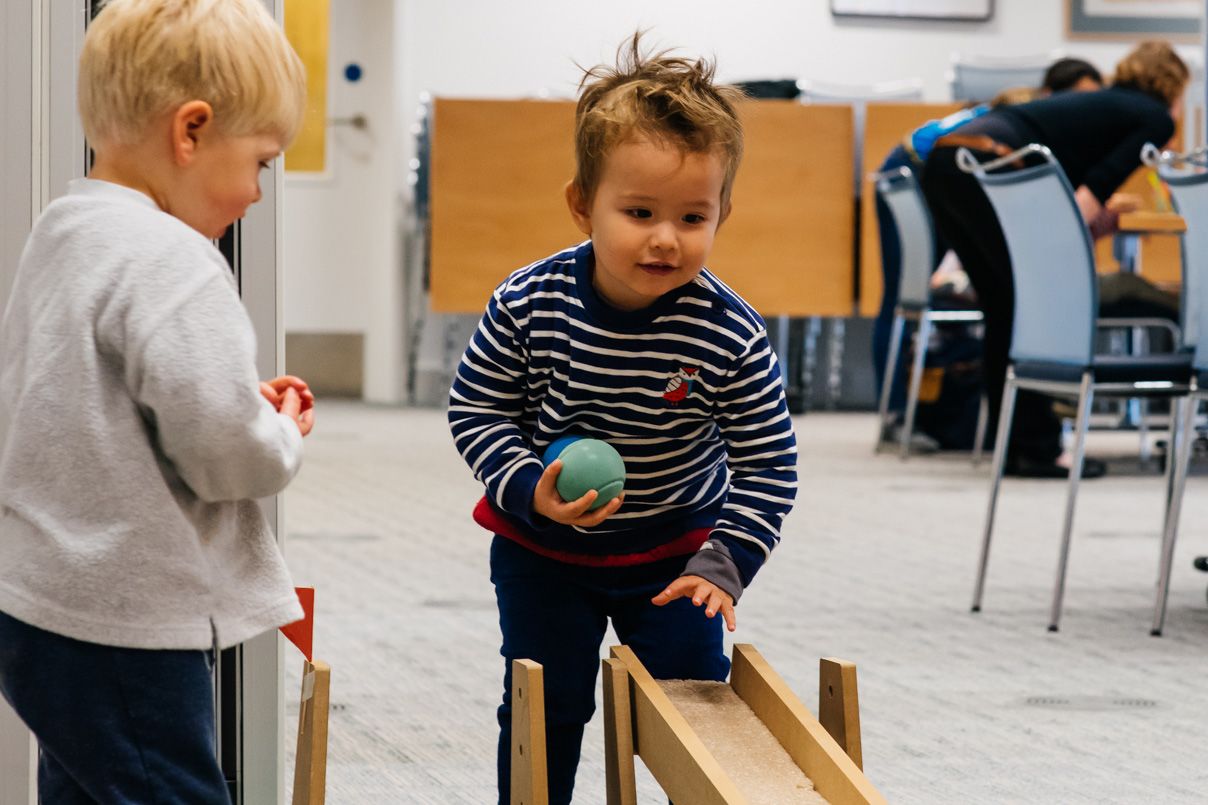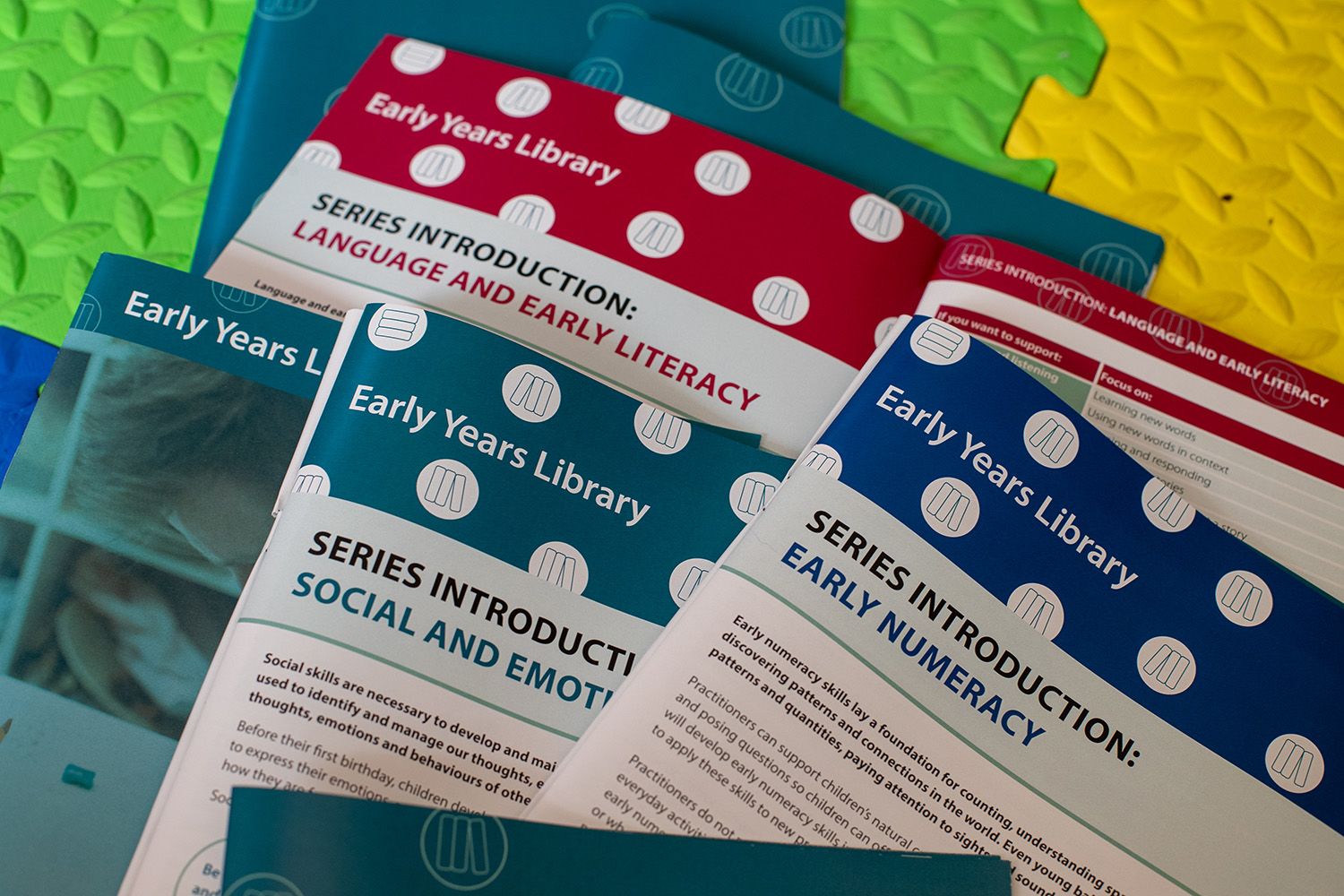

Free resources for early years professionals identify ‘common elements’ that cultivate essential cognitive and social-emotional skills

A free library of resources to help early childhood education practitioners support the development of young children’s language and literacy, numeracy, and social-emotional skills has been released online.

The Early Years Library, which has been published by the Early Intervention Foundation (EIF), was developed in collaboration with the Centre for Play in Education, Development and Learning (PEDAL) at the University of Cambridge.
It consists of four, short series of downloadable booklets which draw together research evidence about how best to support young children’s cognitive and social-emotional development, and how to integrate this into everyday practice. There are 14 booklets in all, covering specific topics such as language and listening, patterns and shapes, regulating emotions, and working together with others.
The Library aims to enhance the quality of interactions between adults and young children in early years settings by focusing on key developmental skills and inspiring ideas, using examples from existing practice that can easily be adapted for use.
An early focus on children’s self-regulation, language and literacy, numeracy, and the skills that allow us to build and maintain positive relationships with others, can have a significant and positive effect as children grow up. Interventions that target these skills in the early years have been shown to improve school-readiness, which then has further knock-on benefits later.
Full-scale interventions of this nature, however, are not always practicable for early years settings, because interventions are often expensive, require specific training, or are difficult to put in place in particular contexts and circumstances.
The Early Years Library addresses this by providing practical guidance about the daily practices and strategies that broadly support children’s positive, healthy development in these key areas.
To make it as relevant and applicable as possible, it was developed with input and advice from a panel of early years practitioners.
The booklets can be used flexibly: each one stands alone, but also complements others in the same series; and they do not have to be read or used in any particular order.
PEDAL members involved in the research included Professor Sara Baker, Dr Janina Eberhart and Anna Jackson, working alongside colleagues from EIF. Over two years, the team collated evidence which helped them to identify a set of ‘common elements’ – the skills, practices, routines and strategies – that recur in programmes supporting children’s early development.
We believe our Early Years Library has the potential to enhance the quality of early childhood education in England.
“It’s really exciting that this freely available resource is finally available for early years professionals,” Baker said. “Each booklet synthesises evidence about the strategies and approaches that are consistently implemented by the most effective early childhood programmes. We hope that practitioners will find inspiring ideas and usable tips about how they can integrate this into their own day-to-day work with children.”
Each booklet in the Early Years Library contains information about which skills are considered key in each domain, why they matter, and how they can be developed through simple activities.
For example, the booklet, Regulating Emotions, identified two common practices that are taught across programmes: learning how to calm down, and generating, choosing and implementing ways of coping with strong feelings. It offers examples showing how both practices can be supported during everyday interactions with young children. These include a technique called ‘belly breathing’ when helping children to calm down, and a playful approach for coping with emotions called ‘Thumbs up! Thumbs down!’
Dr Aleisha Clarke, director of evidence at EIF, said: “We believe our Early Years Library has the potential to enhance the quality of early childhood education in England. We are, however, at the very beginning of this journey. While our work to date is clearly an important first step, the next phase of the research will help us to understand how it will be used and its potential for impact. Through this work, we will ensure the Early Years Library and the common elements approach is supporting our ongoing mission to increase the use of effective early intervention to improve children’s outcomes.”
Further information: https://www.eif.org.uk/open-preview/resources/131
Images in this story from the Faculty of Education and the Early Intervention Foundation